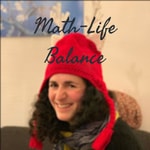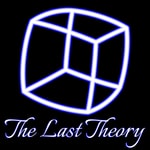Math-Life Balance – Details, episodes & analysis
Podcast details
Technical and general information from the podcast's RSS feed.


Recent rankings
Latest chart positions across Apple Podcasts and Spotify rankings.
Apple Podcasts
🇬🇧 Great Britain - mathematics
14/08/2025#33🇩🇪 Germany - mathematics
14/08/2025#51🇺🇸 USA - mathematics
14/08/2025#58🇬🇧 Great Britain - mathematics
13/08/2025#31🇩🇪 Germany - mathematics
13/08/2025#49🇺🇸 USA - mathematics
13/08/2025#56🇬🇧 Great Britain - mathematics
12/08/2025#31🇩🇪 Germany - mathematics
12/08/2025#49🇺🇸 USA - mathematics
12/08/2025#53🇬🇧 Great Britain - mathematics
11/08/2025#30
Spotify
No recent rankings available
Shared links between episodes and podcasts
Links found in episode descriptions and other podcasts that share them.
See all- https://youtu.be/IKSrBt2kFD4
2 shares
- https://youtu.be/bUaWCOtBUHs
2 shares
RSS feed quality and score
Technical evaluation of the podcast's RSS feed quality and structure.
See allScore global : 43%
Publication history
Monthly episode publishing history over the past years.
Interview with Jeremiah Heller and Vesna Stojanoska
mercredi 13 juillet 2022 • Duration 49:03
In this interview, Jeremiah Heller and Vesna Stojanoska share their experience of combining math and family life, discuss their ways to get over occasional demotivation in research and speak about social aspects of research. Jokes included!
Jeremiah's homepage: https://faculty.math.illinois.edu/~jbheller/
Vesna's homepage: https://faculty.math.illinois.edu/~vesna/
Mike Hopkins’ talk at Paul Goerss’ birthday conference: youtu.be/Ix4pg87LKVk
Chapters:
0:00 teaser
0:34 their family and other animals
4:04 kids’ curiosity about math
8:30 wishes for kids’ future
11:04 existential chat about adulthood
13:51 research & relationship
16:13 finding friends outside math bubble
19:26 two-body problem
21:59 math talks as storytelling
27:01 approaches to doing math
31:02 getting over demotivation in research
35:23 mathematics is a social endeavour
37:12 jobmarket pressure
43:24 having kids & academia
47:18 solid advice
Interview with Dhruv Ranganathan
dimanche 19 décembre 2021 • Duration 48:56
Dhruv Ranganathan is a lecturer at Cambridge University, working in algebraic geometry. In this video, Dhruv talks about doing research with undergrads, being tortured by math problems, looking for friends to write math papers, and other cool stuff!
Dhruv's webpage: https://www.dhruvrnathan.net
Photo: from the webpage
0:00 teaser
0:41 from cricket to air planes
2:16 adventure novels childhood
4:46 what do algebraic geometers do
8:39 experience of undergrad research
12:30 how undergrad research really works
15:35 “now I’m a believer”(c)
18:25 why so much pressure in doing math
21:09 how we create pressure for young people
23:44 doing math as a coping mechanism
27:00 math torture vs intense cartoon watching
28:50 speakers love getting any math questions
30:54 math for extroverts
34:25 teaching students who leave academia
37:33 don’t beat yourself up for math mistakes
39:39 how we try and fail to improve inclusivity
43:44 don’t put people from minorities on every committee
45:45 the advice that’s too hard to follow
48:35 fireplace
Interview with Peter Scholze
samedi 22 mai 2021 • Duration 56:42
Peter Scholze is a professor in Bonn University, working in number theory and arithmetic geometry. In this interview, we chat about the pressure of the Fields medal, discuss the pain of writing math papers and argue about math.
Peter's homepage: http://www.math.uni-bonn.de/people/scholze/
Photo: Hausdorff Center for Mathematics / Barbara Frommann
Merkurjev's lecture on the proof of Bloch-Kato conjecture: https://youtu.be/bUaWCOtBUHs
0:00 proof or relatability
0:58 influence of the background
2:50 learning math vs solving problems
7:38 Peter is not creative
11:55 math chat (sorry!)
14:23 collaborating with Dustin Clausen
16:29 math gives head ache
18:20 pressure of Fields medal
21:47 representing others is the worst
24:01 interviews with prodigies
26:53 don't waste time on the Riemann hypothesis
29:28 emails from amateur mathematicians
34:01 lockdown time is unproductive
36:52 writing math is pain
40:50 thanks to Germany for sponsoring math
45:09 updating Hilbert’s list of problems
49:07 Oberwolfach AG’s are cool
55:31 advice for young mathematicians
Interview with Ravi Vakil
samedi 8 mai 2021 • Duration 01:01:15
Ravi Vakil is a professor at Stanford University, working in algebraic geometry. In this interview, Ravi talks about the importance of a community for learning math, discusses the ways of learning to be creative at math and shares how considering other career options helped him to be happier as a mathematician.
A clarification for Ravi's comment on the situation with math in USSR:
Due to deep-rooted antisemitism in the Soviet Union, the admission of ethnically Jewish mathematicians into top universities was unofficially “limited” by the state. Faced with these hurdles, Jewish mathematicians opted for institutions specializing in specific technologies, such as the Oil and Gas Institute. Over time, some of these lesser known institutions earned a reputation for producing leading academics in the fundamental sciences.
Ravi's homepage: http://math.stanford.edu/~vakil/
Photo: website of Stanford University
0:00 teaser
0:40 wish to be an embassador
4:36 school teachers are the most important
7:17 coming up with math questions
12:56 don’t write emails with vague questions
19:12 not making students intimidated
25:41 building welcoming communities
29:34 USSR math: fairytale vs antisemitism
32:13 big picture vs details
39:55 learn math by solving problems
41:45 consider other jobs to release pressure
49:00 why look down on applied mathematicians
53:15 how to follow math talks
59:27 the most desired interviewee
59:58 wish for young mathematicians
Interview with Max Karoubi
mercredi 5 mai 2021 • Duration 56:46
Max Karoubi is a Professor Emmeritus at the University of Paris 7, working in K-theory and algebraic topology. In this interview, Max shares warm memories about Grothendieck and the Bourbaki group, discusses math studies in Northern Africa and highly recommends doing research in collaborations.
Max' webpage: https://webusers.imj-prg.fr/~max.karoubi/
Photo: from Max' webpage
0:00 teaser
0:43 getting into math in Northern Africa
5:33 getting a family helped to do math
9:12 PhD under Cartan and Grothendieck
13:05 Grothendieck: naive genius
16:53 Karoubi as a name for math terminology
19:18 new foundations of hermitian K-theory
22:20 why write math in french
26:33 founding European Congress of Mathematics
29:30 collaborators are the best
34:35 the importance of teaching
38:53 why french people are arrogant
42:26 RIP good jobmarket times
44:33 how we can help math in developing countries
46:44 traveling to USSR in 1961
48:58 please don’t boycott ICM!
51:35 you cannot do math alone
55:58 wish for young mathematicians
Interview with Mariana Smit Vega Garcia
samedi 17 avril 2021 • Duration 01:02:30
Mariana Smit Vega Garcia is an Assistant Professor at Western Washington University, working in geometric analysis and partial differential equations. In this interview, Mariana speaks, among other things, about her math-life balance, the experience of representing different minorities and the joy of teaching mathematics. In addition: lots of friendly advice for undergrads!
Mariana's webpage: http://faculty.wwu.edu/smitvem/
Photo: from Mariana's webpage
0:00 teaser
0:44 didn’t want to be a professor
3:28 trying to find math-life balance
9:10 collaborators are friends
13:06 mathematician-extrovert
16:05 experiencing sexism
19:10 burden of representing a minority
21:38 insecurities in math
27:09 joy of teaching
30:07 motivation to do research
34:28 algebraic vs analytic worlds
38:35 pessimism in research
40:31 we are more than our math
44:22 moving around the world
49:35 advice for students from faraway
52:32 initiatives for minorities
58:32 what students have to know
1:00:08 final advice
Interview with Richard Thomas
samedi 10 avril 2021 • Duration 01:02:50
Richard Thomas is a professor at Imperial College London, working in algebraic geometry and mirror symmetry. In this interview, Richard speaks about math education for kids, contemplates the process of doing research and gives plenty of good advice for PhD students.
Richard's webpage: http://wwwf.imperial.ac.uk/~rpwt/
Photo: Richard's wikipedia page
Interview with Richard Thomas
0:00 teaser
0:30 non-linear way in math
3:14 the mystery of mathematicians
6:55 kids' attitude to math problems
11:40 boys vs girls math approach
16:26 me being triggered (clickbait!)
21:32 what made Richard a mathematician
26:40 insights vs dull proofs
29:06 math is subjective
30:08 process of doing math research
35:16 obstructions to enjoying research
37:53 what students should know
43:53 hardest part of research
47:36 insecurities of mathematicians
51:19 psychology of doing math
54:55 minorities in math
1:01:14 math during an earthquake
What brought me into math
vendredi 26 mars 2021 • Duration 10:50
This video is dedicated to my teacher of mathematics in the middle school, Andrey Yurjevich Alexeev. Time for stories about my first encounter with "abstract math" and my first math talk!
My school: https://610.ru/en/
Photo of A. Yu. Alexeev: from Vasily Baev's private collection
Interview with Marc Levine
dimanche 21 mars 2021 • Duration 59:34
Marc Levine is a professor at Duisburg-Essen University, working in algebraic geometry and motivic homotopy theory, and my PhD advisor! In this interview, Marc contemplates how to look for research problems, learn new research areas and move from USA to Germany with your family.
Marc's webpage: https://www.esaga.uni-due.de/marc.levine/
Photo: Marc's private photo collection
0:00 teaser
0:48 becoming a mathematician
2:51 family’s reaction
4:48 moving from USA to Germany
6:55 bilingualism and jokes
10:40 skills for doing research
14:15 encouraging to stay in academia
17:06 PhD advising
18:55 what is work
20:20 mysterious time-management
23:00 not being judgmental
25:08 geometric intuition
27:55 thinking too fast
29:03 challenge of moving forward
32:24 finding math problems
35:26 independence after graduation
38:21 serious research mistakes
43:09 how to learn motivic homotopy theory
45:45 learning math backwards
47:28 changes in the math community
51:31 mathematical inspiration
53:21 funny conference encounter
55:12 my gratitude and R. Kipling
59:13 advice to young mathematicians
Interview with Dustin Clausen
samedi 13 mars 2021 • Duration 01:06:12
Dustin Clausen is an associate professor in Copenhagen university, working in algebraic K-theory, homotopy theory and number theory. In this interview, Dustin shares controversial opinions on publishing and grant system, tells about his view on leaving academia, and reproduces very vividly a Tarantino style plot of an interrogation in Moscow, for stealing cookies! P.S. Dustin would like to assure the viewers that he did not steal any cookies.
Dustin's homepage: https://www.math.ku.dk/english/staff/faculty/?pure=en%2Fpersons%2F467008
Photo: from Copenhagen University webpage
0:00 teasing teaser
0:40 French high school shock
5:04 being grandson of John Tate
8:00 doubts about academic career
9:38 alternative career options
11:01 opinions too negative to share
13:41 disappointments of grad school
15:01 giving a satisfying math talk is impossible
17:01 decision to stay in academia
19:56 publishing is a rotten enterprise
23:51 struggles of refereeing
26:27 mistakes in talks and papers
31:10 my first impression of Dustin
33:17 numbers and homotopies
36:25 Mike Hopkins is the best
40:40 Jacob Lurie as PhD advisor
44:11 not understanding is great
47:44 reading and writing math papers
51:17 “Math in Moscow”: thrilling story
57:00 doing math when you have babies
59:04 distributing grants equally
01:01:02 how to not be afraid of job market
01:03:18 funny reaction to saying you’re doing math
01:05:23 kind words for those who feel demotivated
